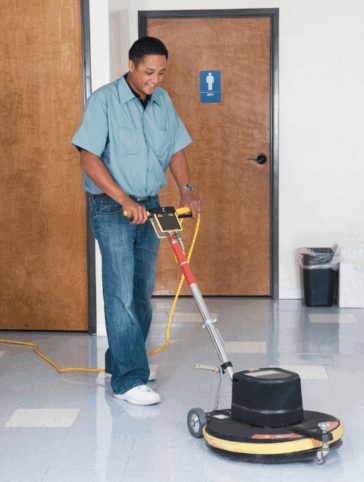
May 13, 2025
How to Reduce Your Janitorial Company’s Ex-ModThe janitorial industry provides essential services to clean and maintain a healthy indoor atmosphere for schools, offices, hotels, hospitals, and restaurants. The industry includes manufacturers and suppliers of cleaning products in addition to in-house and contracted custodial providers. But with those cleaning products comes several potential cleaning hazards that could be detrimental.
Cleaning industry employees may face exposure to hazardous chemicals, work with equipment that can present a threat, or perform various tasks that may cause an injury or illness of some kind if they don’t equip themselves with the right protection. To protect against exposures, OSHA has provided its top risks for janitors so that they stay aware of the hazards they face daily.
These guidelines reduce these potential health issues stemming from cleaning hazards and are crucial to safeguarding employees.
One way to bolster employees’ safety and integrity and the companies they work for is to offer comprehensive janitorial insurance to avoid significant fines and legal troubles if and when they arise. This kind of coverage provides specially-designed insurance for janitorial and cleaning services from their inherent risks, such as slips, trips, and falls, and other hazards you’ll read about below. Janitorial insurance might not physically protect janitors from hazards, but it can provide workers’ compensation benefits as well as general liability benefits.
While the hope is that no janitors on staff come in contact with hazards, it’s important to have janitorial insurance to limit the reach of costly claims.
Janitors frequently need to carry out many tedious tasks, including asbestos exposure, such as checking pipe insulation or drilling into ceilings and floors. These tasks can increase the chance that someone on the job is affected by this material.
Asbestos is exceptionally impervious to heat and electricity and is present in most buildings erected before 1970. These qualities make it useful in the construction industry, but janitors who confront it while carrying out their work may end up suffering from mesothelioma, a cancer of the lung lining.
Falls are a significant cause of accidental injuries or deaths. According to the Centers for Disease Control and Prevention (CDC), over one million Americans suffer a slip, trip, and fall injury, and more than 17,000 people die in the U.S. annually because of these injuries. And while it’s true that the bulk of those work-related falls are in the fields of construction and manufacturing, the janitorial industry is a natural sector to face these issues, given the fact that employees work with wet floors and chemicals.
When a janitor must clean up a mess in a hallway, for example, they have to mop up, leaving small puddles or streaks of water. And even though they’re accustomed to this task, they may still suffer injuries.
It’s only natural that those who work in the cleaning industry will have to use chemicals to get their job done. But these tools can be very harmful and cause significant cleaning hazards for janitors, especially if they stay in this line of work for a significant amount of time and work in poorly ventilated areas, as fumes from cleaners can be toxic when inhaled.
Some of the potentially harmful chemicals include:
Mold is not an uncommon issue to have to deal with while cleaning, especially in more industrial commercial buildings. Mold comes in many forms, and not all are toxic or as harmful as other kinds. Regardless, any mold exposure can end up wreaking havoc on a custodian’s breathing.
Mold is especially problematic for janitors because they are the people who encounter it the most. When they do have to clean out the mold, they have to use chemicals, which only heightens the chances for more potential health issues due to chemical exposure.
If janitors must clean out the mold, it’s essential that they wear personal protective equipment, including full face masks, gloves, and face shields, and make sure they wash their hands and arms as thoroughly as possible to limit the possibilities of irritation. Mold may seem harmless, but it’s responsible for many complications, such as respiratory issues.
Though not as commonly found as the other hazards listed above, bloodborne pathogens might be the most hazardous. Some pathogens are contagious enough that even coming in contact with them carries the risk of contracting a fatal infection, including HIV, hepatitis B, and hepatitis C. To keep from encountering bloodborne pathogens, OSHA suggests that janitorial professionals wear PPE, limit their contact with bodily fluids, use a strong disinfectant solution, and use biohazard bags to expose waste.
Located across the Golden Gate Bridge, just outside of San Francisco, Tangram Insurance Services is a full-service Managing General Underwriter and Program Manager offering specialty programs. We focus on industry-relevant coverage, competitive pricing, and practical business and risk management solutions for your clients. Since we are not all things to all people, we make sure to create outstanding custom-built solutions that matter to those businesses, and the brokers who serve those industries. Contact us at (888) 744-9810.